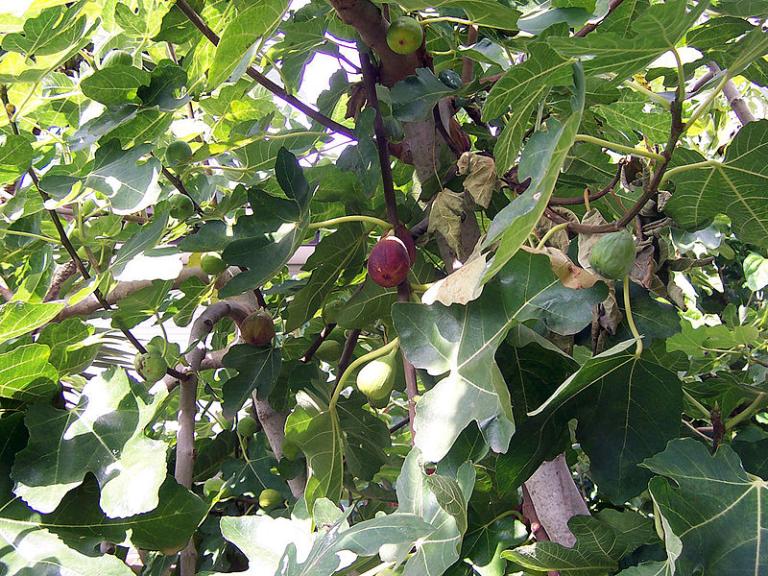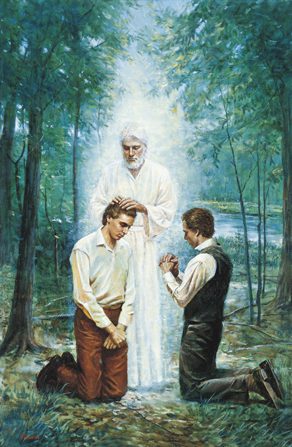
Compare Matthew 6:14-15; 17:20; 21:19; Luke 17:6; John 14:13-14; 15:7; 16:23
The Savior’s curse on the fig tree, which I mentioned here very briefly a short while ago, is fulfilled in these passages, and the disciples are astonished at his power. (Of course, he’d raised a dead man only a few days before, so they shouldn’t really have been so surprised.)
I like a comment that Brant Gardner made about this passage several years back: “The fig was one of the trees used as a symbol of the tree of life. This fig promised life but could not deliver. The true tree of life (Christ) removed a false one.”

Image by Del Parsons, from LDS.org
Compare John 2:18-22
These passages represent the chief priests and scribes of Jerusalem in Jesus’ day as rather cynical political calculators.
But they also raise another matter: the issue of authority. Some visions of earliest Christianity suggest (or say outright) that “authority” meant nothing to Jesus and the primitive “Jesus movement,” which was, rather, a loose assemblage of first century counterculturists, sometimes depicted as essentially (I’ll bring them up since I’m not far away from the legendary Haight-Ashbury district) a group of hippie pacifists.
According to such views, concepts of Christian “priesthood,” a distinction between the ordained and the unordained, and a hierarchy of ecclesiastical offices — as these exist in the Roman Catholic and Greek Orthodox traditions and, more recently, in the Church of Jesus Christ of Latter-day Saints — are products of a later evolution and quite foreign to the teachings and practices of Jesus himself.
And some Christians, of course, teach the notion of a “priesthood of all believers,” which, if taken literally, would pretty much dissolve the concept of “priesthood” altogether — in much the way that, if everybody is “special” and everybody is “above average,” nobody is.
But authority clearly meant a great deal to Jesus’s critics. And, in these verses, he doesn’t say that it shouldn’t. Indeed, he seems to accept their premises: John, he implies, had divine authority for his actions, and so does he.

Compare Luke 7:29-30
A simple observation: Someone setting out to demonstrate the Protestant teaching of salvation by grace alone, without works — sola fide, sola gratia — would, I think, have a very difficult time doing so solely from the teachings of Jesus Christ as recorded in the four New Testament gospels.
You can’t find it in this passage. You can’t really find it anywhere else in the gospels, either. For that matter, I don’t believe that you can find it in Paul. Not in the way that many of our Evangelical brothers and sisters think they can.
That said, we also shouldn’t understate the importance of divine grace in salvation. There’s a temptation to overcompensate when responding to exaggerated distortions, in this as in other matters both theological and non-theological. It can lead to equal and opposite errors.
Posted from Jerusalem, Israel










